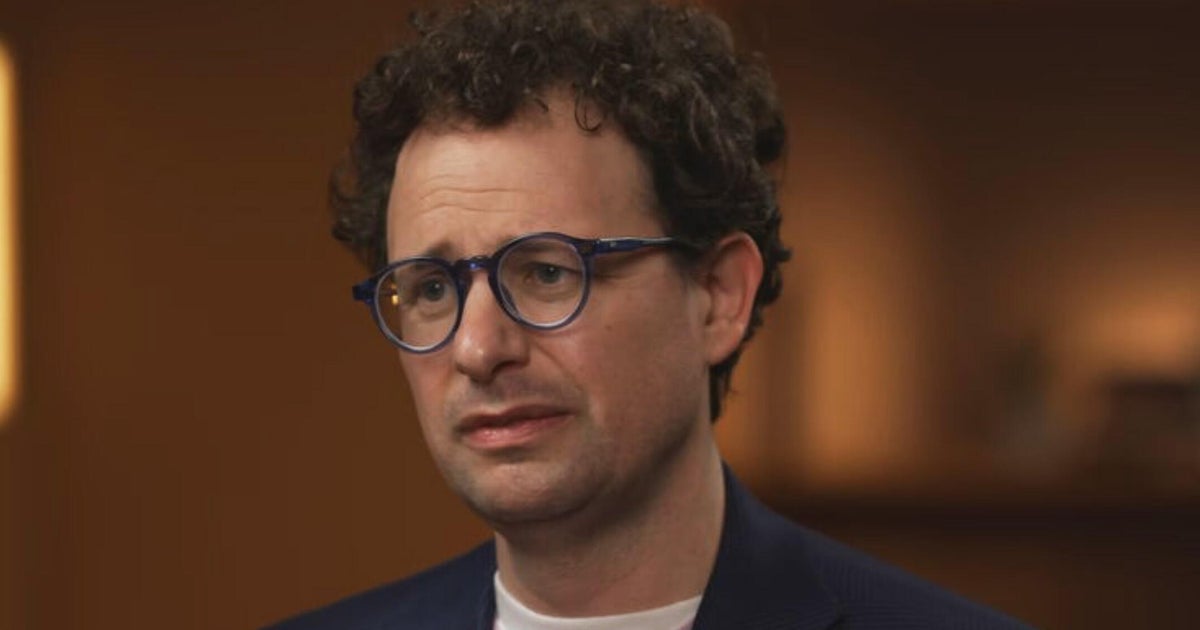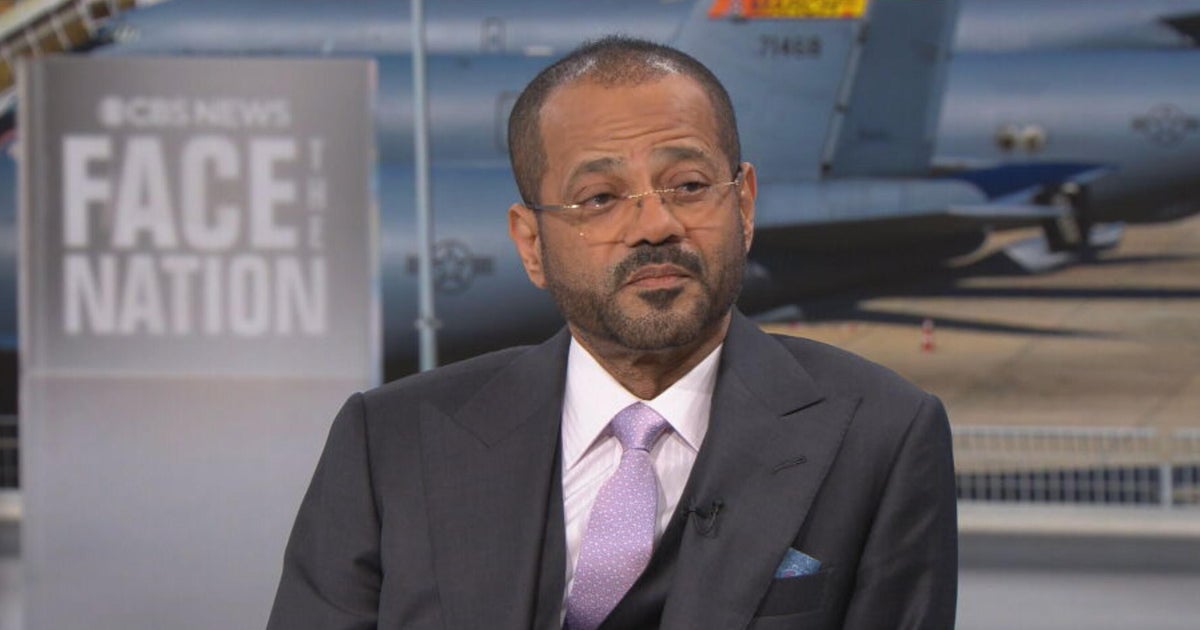Transcript: Oksana Markarova on "Face the Nation," Oct. 16, 2022
The following is a transcript of an interview with Ukrainian Ambassador to the U.S. Oksana Markarova that aired Sunday, Oct. 16, 2022, on "Face the Nation."
MARGARET BRENNAN: Charlie D'Agata, thank you and we are joined now by Ukraine's ambassador to the United States, Oksana Makarova. Madam Ambassador, good to have you back. Let's pick up where my colleague just left off. Last time President Zelenskyy was on this program at the end of September, he talked specifically about the delivery of air defense systems, thanking the United States, but they still have not been delivered. What is the holdup in the delivery of American weapons?
UKRAINIAN AMBASSADOR TO THE U.S. OKSANA MARKAROVA: Thank you for having me and thank you for talking about that. Yes, we still need all the weapons we're talking about with air defense being a priority after this horrible strike that we all see in return, and not only to select cities, but everywhere in Ukraine, and especially in Kyiv, and infrastructure before the winter. Unfortunately, these systems are difficult to produce, and they're not ready on the shelves waiting. But we're doing everything possible and asking our partners to do everything possible to speed up not only the delivery, but also the ordering of the system. So hopefully, you heard your president been very clear on trying to accelerate the delivery of those and we are counting on more systems to be announced and decisions taken to produce because we do need to start to secure as many places in Ukraine as possible as many children in Ukraine as possible from Russian rockets.
MARGARET BRENNAN: The Pentagon has said it's still been a month before those NASAMS come. Let's talk about what we just heard on Friday from Russian President Vladimir Putin. He said that the mobilization drive to increase the number of soldiers will end in the next two weeks, and that massive strikes are no longer needed. What does your Government assess he means by this? What are you preparing for?
MARKAROVA: Well, as we said, you know, 235 days, no limits and no moral restrictions from- from Russian aggressor. So we should be prepared for everything. And it's actually irrelevant. But at this point what he says because this partial mobilization has been a big failure. People in Russia do not want to be mobilized. They're not equipped. They're not prepared. They're not motivated, yet there are a lot of them. But it has been a failure in Russia. They're probably not forcing it because they will have the plant mobilization in the autumn. We don't know. All we- all we are focused on in staying the course. And defending our country everywhere and being prepared for anything that can come from the Russian Federation. We have seen all the war crimes, we have seen all the rocket attacks. We have seen them using this Iranian Shahed drones on civilian residential areas killing families. So what he says is actually irrelevant, because what they do, and everyone see what they do. This is what we have to pay attention to.
MARGARET BRENNAN: I want to ask you about billionaire Elon Musk. He seemed to have reversed his position yesterday, at least publicly in saying that Starlink, which is an internet service that he has made available in Ukraine, which has helped your military communicate on the battlefield that he will pay for it. This was after some back and forth to the Pentagon about not paying for it. What's the bottom line? Can your military depend on this for communication or not?
MARKAROVA: Well, look, I have disagreed with Elon Musk on some of his views about Crimea, and we were happy to discuss it with him. But with regard to the company, we have started cooperation with Starlink ,excellent cooperation. Before this phase of the war. We got the Starlinks in Ukraine very quickly, in some areas for humanitarian support, it's the only connection that we have. And it's very important to continue having it and I'm positive that we will find a solution there-
MARGARET BRENNAN: So It's not resolved yet?
MARKAROVA: It's there. It's working. We will need to be working for a long time. And look, we're proud to be one of the fastest growing Starlink country globally to, but the payment, who's gonna pay it? I'm sure we will find the solution there.
MARGARET BRENNAN: Because the Financial Times had reported that there were outages from the satellites that had a direct impact on the battlefield, particularly in the east of the country. Is this payment dispute hurting your military?
MARKAROVA: Well, look, there is no payment dispute, per se. I mean, there are discussions on that we need more and where we need them and how we will need them but the actual reason for the outages is Russian aggression, and the fact that they are booming our infrastructure and this- this- this disrupting the- the connectivity of all the cellular operators and trying to interfere also with with others. We're trying to resolve it in many possible ways. And Starlink has been instrumental part of the solution.
MARGARET BRENNAN: France's President drew a lot of scrutiny this week because he said if Russia carries out a nuclear attack on your country that his country would not respond with nuclear weapons. What exactly is the level of risk right now from the nuclear threat, whether it's from tactical weapons on the battlefield, or what's happening at your nuclear power plant?
MARKAROVA: We cannot rule out anything. And as you- as you said, you know, the nuclear threat is already there, because Russians illegally control one of the largest nuclear plant in Europe. And the situation there deteriorates as it's not returned to Ukraine, because it's the personnel there is not in the- in the quantity that needs to be there. They are threatened by Russians, we don't know exactly what happens to them. And the station has to be returned to Ukraine in order to decrease the risk. So this is a big risk. And we need Russia to get out with regard to the use of nuclear weapons. I think again, it's issue it's much bigger than Ukraine, we in Ukraine will resist and we will not give up regardless of what Russian Federation is using against us. We have, I think, proven it, from rockets, to atrocities to anything that they try to do in Ukraine. It doesn't break our will. So there is no point for Russian Federation to use anything else because it will not stop us in defending our homes. With regard to the global response. It has to be very harsh, even for the talks of Russian Federation and Putin about using the nuclear weapons because this is a clear red line. This is on, you know, on what the whole security infrastructure of Europe and global is built–
MARGARET BRENNAN: So, when the French president says something like that, does it muddy that line? Does it blur that line?
MARKAROVA: Well, I just- I just hope that everyone understands that the way it should be understood. In 1994, Ukraine became the country that voluntarily gave up the third largest nuclear arsenal and received assurances of our safety, because we gave up our nuclear weapons. And if a nuclear weapon will be used by a nuclear power and aggressor against non-nuclear country like Ukraine, then the whole nuclear deterrence system is going to be under risk. So I think we all together cannot allow Russian Federation to use it.
MARGARET BRENNAN: Ambassador, thank you very much for your time. Always good to have you with us. We'll be back in a moment.



